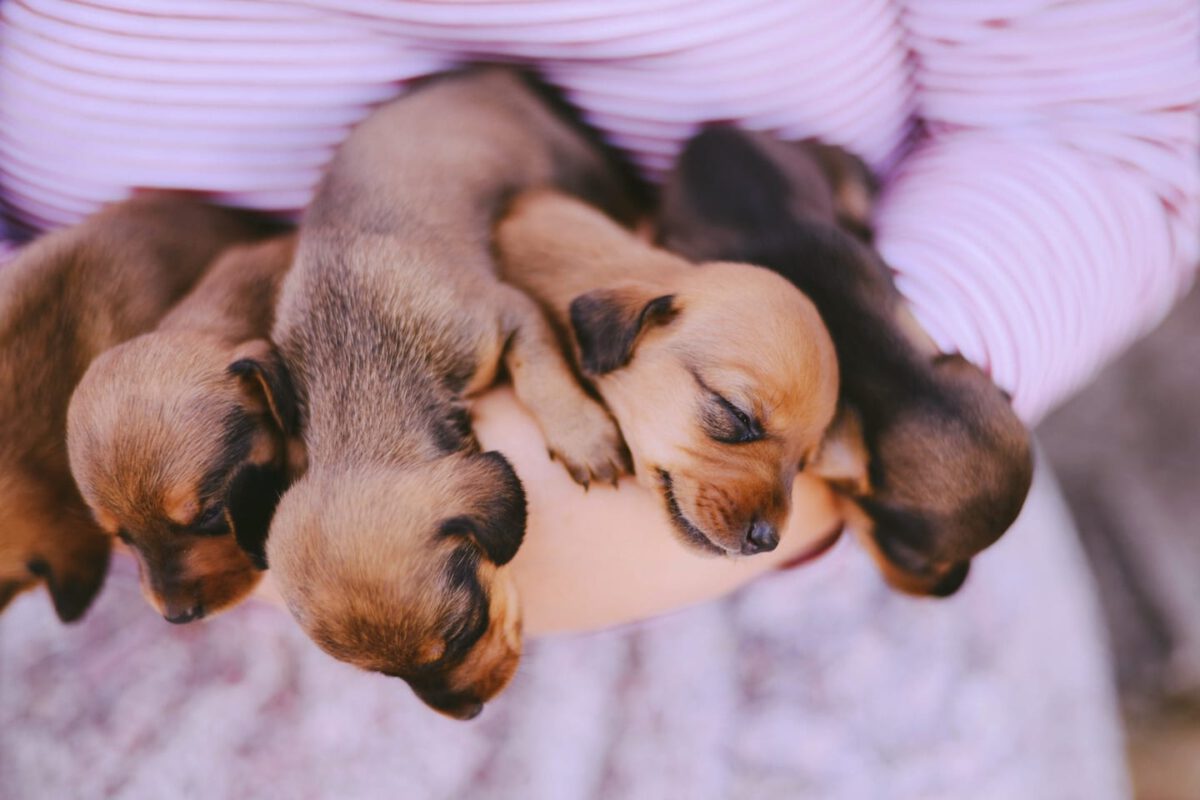Rescue dogs bring an incredible amount of joy and love into our lives. However, as pet owners, we often wonder about their past and what they may have experienced before becoming part of our families. One common question that arises is, “Has my dog had puppies?” While it may be challenging to know for sure, there are several indicators that can help you determine if your dog has had a litter in the past. In this article, we will explore how to tell if your dog has had puppies.
Physical Signs
Similar to humans, pregnancy and childbirth can have significant effects on a dog’s body. By observing certain physical traits, you can gain insights into whether your dog has had puppies.
Enlarged Nipples or Teats
One prominent sign that a dog has had puppies is the presence of enlarged nipples or teats. These nipples will be noticeably larger than those of a dog that hasn’t given birth. In some cases, if the dog recently had a litter, she may still be lactating or leaking milk.
Loose-ish Belly Skin
Dogs that have given birth often have loose belly skin. This loose skin results from the expansion required to accommodate the growing puppies during their development. Consequently, if your dog exhibits sagging or stretch marks on her belly, it’s likely she has had puppies in the past.
Changes in the Uterus
The presence of changes in the uterus is a strong indicator of previous pregnancy in dogs. However, detecting these changes requires x-rays or ultrasounds, which can be performed by a veterinarian. These procedures are highly effective in determining if your dog has ever had puppies.
Distended and Larger Vulva
Mother dogs typically have a larger and more distended vulva than dogs that have never had litters. This enlargement is a result of the physical changes that occur during pregnancy and delivery. If your dog’s vulva is significantly different from that of other dogs, it’s likely she has previously been a mother.
Brownish Discharge
Another common indicator that your dog has had puppies, especially recently, is the presence of brownish discharge from the vulva. This discharge occurs as part of the postpartum recovery process and is an indication that your dog has given birth.
Unaltered Dogs
Determining whether an unaltered dog has had puppies is more challenging, as they exhibit similar signs when entering heat or experiencing their estrus period. During this phase, the nipples and vulva may enlarge, and the dog may display discharge. However, these indications will subside once the estrus period ends. If you haven’t already done so, consider discussing spaying and neutering options with your veterinarian to prevent unwanted pregnancies and improve your dog’s overall health.
Frequently Asked Questions
Q: Can I determine if a dog has had puppies without a veterinarian’s help?
A: While some physical signs can indicate whether a dog has had puppies, confirming it without veterinary assistance may be difficult. X-rays and ultrasounds performed by a veterinarian offer the most accurate means of determining if your dog has had puppies.
Q: How soon after giving birth can I tell if my dog has had puppies?
A: The physical signs, such as enlarged nipples, loose belly skin, and a distended vulva, should be noticeable shortly after giving birth. However, it’s always best to consult with a veterinarian for a professional assessment.
Q: Are there any behavioral changes in dogs that have had puppies?
A: While behavioral changes aren’t definitive indicators, dogs that have had puppies may display nurturing tendencies even when not caring for their own offspring. They may also exhibit a heightened sense of protectiveness.
Conclusion
Understanding whether your dog has had puppies can provide valuable insights into her past and contribute to her overall care. By observing physical signs such as enlarged nipples, loose belly skin, changes in the uterus, a distended vulva, and brownish discharge, you can make an informed assessment. However, for a definitive answer, consult with your veterinarian, who can conduct further examinations. Remember, whether your dog is a mother or not, she will always bring love and joy into your life.
For more information about caring for your furry friend, visit Pawsoha.
